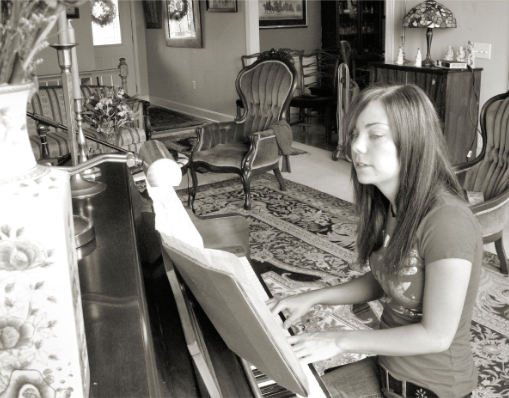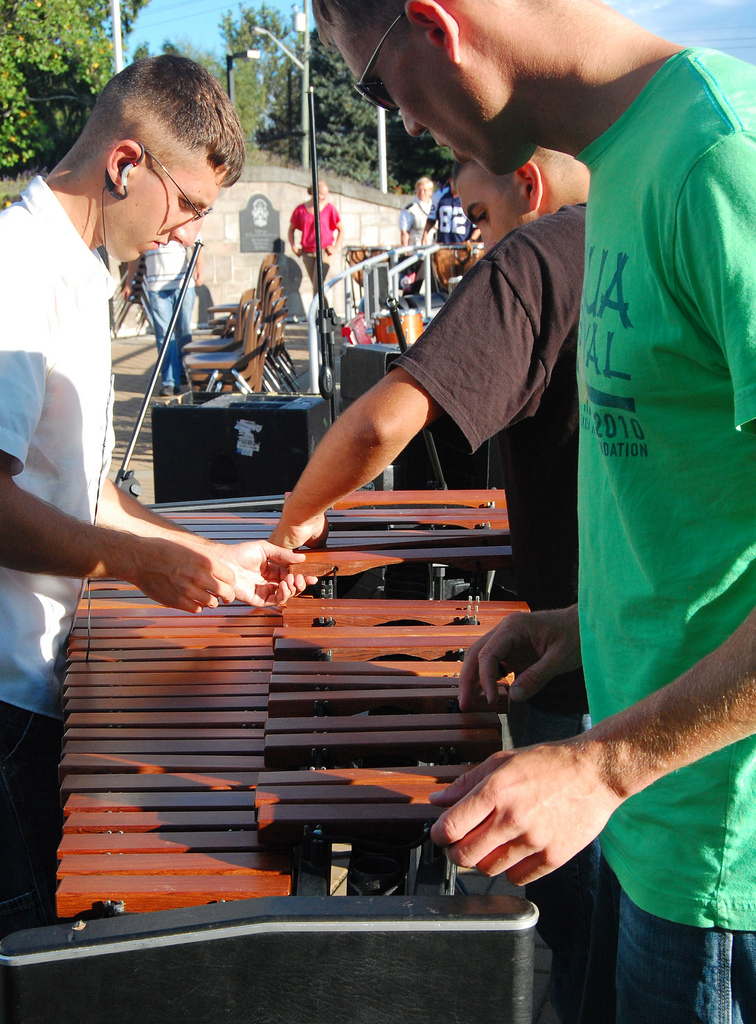
Originally published December 16, 2010 on Sound Education Blog.
Performing, listening to, and enjoying great music are their own rewards. But most people recognize that there are many additional life lessons learned while studying music. We discussed these lessons in a 2010 #MusEdChat collaborative session on Twitter. This series of blog posts contains my reflections on that discourse.
Life Lesson #3: Listening Trumps Speaking
It seems as though the problem of poor listening skills has never been larger than it is in the modern school. From their earliest age, children in the United States are presented with technology designed to grab their attention. Their toys are more interactive, more electronic, and more interesting on the surface than the toys of the past. When I was a child, I had a little wagon. My young daughter also had a wagon. But hers was multiple bright colors, it had buttons that activated various songs and alphabet studies – both in English and Spanish. It lit up. Oh, and it held things. After school, my grandparents rode horses. My dad read hot rod magazines. I watched reruns of Gilligan’s Island. My daughter plays fully interactive video games. These generational advances in technology that we are immersed in have a real effect on how we interact with the world. For our betterment and detriment.
When a student first picks up an instrument, most typically as a child, she is most interested in and focused on making a sound with it. He wants to play it. The exciting new adventure of music, it seems, is all about producing. This is fine for a little while, but soon a good teacher will introduce the student to the idea of listening. Listening improves performance. Honestly if one had to choose between only listening or only playing, the best choice would be to listen. (Because uninformed playing is bound to produce music not worthy of an audience. Thankfully we can do both, though!).
In practice. One of the great lessons of music is to be productively self-critical. We are taught early to be aware of our sound. To be aware of our tone quality, articulation, phrasing, intonation, etc. These attributes of our sound are refined in the practice room by listening to ourselves. To enhance this, we often record our practice sessions to get a truthful glimpse of what is coming out of our horns. Without thoughtful and diligent attention to our sound, we would not improve.
In rehearsal & performance. We may have perfected our individual sound in the practice room, but the game changes when we enter the band hall and attempt to create music with an ensemble. Now our listening responsibilities are amplified. We are still accountable for everything that must be heard in the practice room. With the group, our ears become much bigger as we must hear ensemble blend, balance, intonation, articulation, style, dynamics, and the small nuances among section mates and across the entire group that demand agreement and uniformity. Performance requires the same with the added uncertainty of no safety net (i.e. the conductor can’t stop the ensemble and go back to letter “B”). The truly incredible thing, that few outside of music realize, is the level of instant aural feedback, cognitive processing, and fine muscle modifications or corrections a musician completes continually while performing. This incredible and continuous cycle is made possible thanks to a good ear.
In life. Our society pushes visual and aural stimulation at us without cessation. Barely half of American adults read literature or books in any format. We want our news in shorter segments (preferably fewer than 140 or 280 characters!). We DVR our mindless TV shows so we can fast forward through the commercials. As a culture, we are losing our attention span and our ability to actively listen and intelligently process information. The study of music combats this trend. Music teaches focus, listening, and critical processing. Music teaches long form expression, both in performance and appreciation of music performed. Experienced performers become informed listeners. One of the things that becomes more and more evident as you mature is that listening trumps speaking (or playing/singing).
I like to listen. I have learned a great deal from listening carefully. Most people never listen.
– Ernest Hemingway
What About You?
Are you a musician? Have you noticed that, at least while performing, your attention span is expanded through active listening? Active listening can be a truly meditative process that can aid in your life beyond music. Have you found benefits from it? Let me know your thoughts in the comments!
This is part 3 of a 12 part series.


